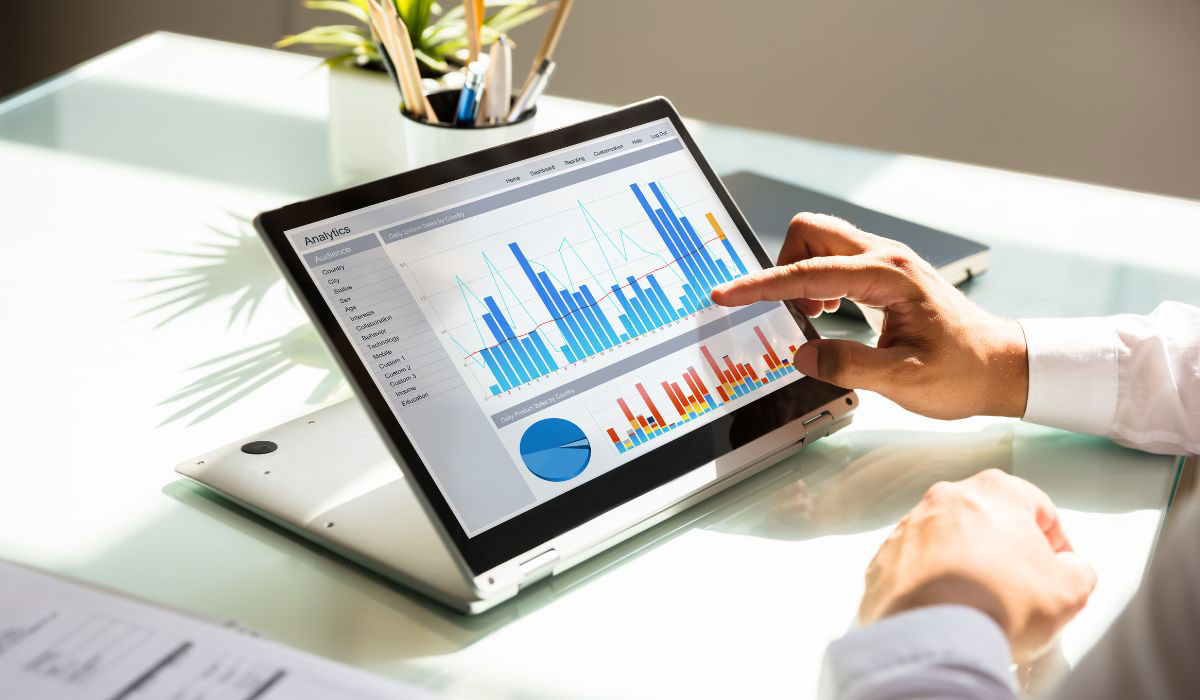In an age when information travels at breakneck speed, the term “Big Data” has become a buzzword, referring to the massive volume of data created every day. The digital era is defined by social media interactions and online material, with 500 terabytes of data posted on Facebook every day and over 300 hours of video uploaded to YouTube every minute. But what distinguishes Big Data from its smaller cousins, and why do businesses need this massive stream of information? In this essay, we will deconstruct Big Data’s fundamental ideas and examine its real-world applications through the eyes of prominent worldwide businesses.
Understanding the Essence of Big Data: The 5 Vs
Big Data is characterized by five pivotal aspects, often referred to as the 5 Vs:
Volume: Big Data is, as the name suggests, colossal. The sheer volume of information generated daily is a hallmark of this phenomenon.
Velocity: In the digital age, speed matters. Real-time data is essential for prompt decision-making and efficient problem-solving.
Variety: Big Data comes in various forms. Structured data, which is orderly and easy to analyze, forms a portion. Unstructured data, comprising content like images, videos, and social media posts, makes up a significant chunk. Semi-structured data falls in between, presenting a challenge and an opportunity for analysis.
Veracity: Data integrity is paramount. Big Data needs to undergo rigorous quality and credibility tests to ensure its reliability and accuracy.
Value: The ultimate goal of Big Data is to extract valuable insights. Data must be useful, providing businesses with actionable information that enhances their strategies and operations.
Unleashing the Power of Big Data Analytics: 7 Real-World Brand Success Stories
Amazon: Personalized Shopping Experience : Amazon, the e-commerce behemoth, analyzes consumer behavior, preferences, and purchase history using big data analytics. Amazon offers goods matched to individual interests by analyzing massive volumes of data, increasing consumer happiness and revenue. Customers are engaged and loyal as a result of this tailored shopping experience, demonstrating the value of big data analytics in the retail sector.
Netflix: Content Recommendation : Netflix, a global streaming service, recommends material to its subscribers using big data analytics. Netflix predicts what users would want to watch next based on their viewing histories, ratings, and searches. This data-driven strategy not only keeps viewers interested but also adds considerably to client retention, demonstrating the value of big data in the entertainment business.
Starbucks: Optimizing Store Locations : Starbucks, the well-known coffee brand, uses big data analytics to identify the best shop sites. Starbucks chooses good locations for new stores by evaluating demographic data, foot traffic patterns, and local preferences. This strategic strategy assures improved consumer traffic, revenue, and brand awareness, proving the importance of big data analytics in retail expansion.
American Express: Fraud Detection : American Express, for example, uses big data analytics to detect fraudulent transactions. Algorithms can detect strange trends and highlight possibly fraudulent actions by evaluating massive databases in real time. This proactive strategy not only protects clients, but also preserves the brand’s confidence and integrity in the highly regulated financial sector.
General Electric: Predictive Maintenance : General Electric (GE) uses big data analytics to improve the operation of industrial machinery. GE anticipates when equipment will break and schedules maintenance before problems arise by collecting and analyzing data from sensors implanted in machines. This predictive maintenance technique decreases downtime, lowers operating costs, and preserves the longevity of important equipment, demonstrating big data’s promise in the industrial industry.
Airbnb: Dynamic Pricing: Airbnb, the worldwide hospitality platform, implements dynamic pricing tactics using big data analytics. Airbnb modifies lodging costs in real time by assessing factors such as demand, seasonality, local events, and customer behavior. This data-driven pricing approach maximizes revenue for hosts while offering competitive costs to visitors, demonstrating the power of big data in the sharing economy.
McDonald’s: Mass Customization through Data-Driven Menus : McDonald’s, the fast-food behemoth, is embracing big data analytics to shift from bulk marketing to mass customisation. McDonald’s provides tailored menu selections to consumers by using computerized menus that adjust based on time, weather, and previous sales data. This adaptable strategy offers a personalized eating experience that caters to individual tastes while also increasing client satisfaction.
Business Transformation Through Big Data Analytics
These real-world examples demonstrate how big data analytics is altering how organizations operate, engage consumers, and make strategic choices across sectors. As the demand for data-driven insights grows, pursuing advanced education programs such as an MBA in Business Analytics equips aspiring professionals with the skills and knowledge to navigate the complex world of big data analytics, ensuring they play a pivotal role in shaping business’s future.
Read this blog post: 7 Essential Things You Must Know About an MBA in Business Analytics
MBA in Business Analytics: From Data to Excellence
Data is the lifeblood of contemporary business, fueling innovation and propelling firms ahead. The Master of Business Administration (MBA) in Business Analytics provided by Chitkara University in conjunction with Ernst & Young serves as a light for aspiring professionals looking to harness the power of data. This transformative program is designed to provide professionals with the skills and knowledge required to transform raw data into actionable insights, producing a new generation of corporate leaders skilled in the art of data-driven decision-making.
Why Should You Pursue an MBA in Business Analytics?
This degree opens up a world of possibilities, equipping graduates for a future where data reigns supreme. With an industry-focused curriculum, Chitkara University’s MBA in Business Analytics places students at the forefront of the data revolution. Graduates not only profit from the industry’s exponential expansion, but they also receive access to worldwide work prospects. With an in-demand skill set, individuals may pursue a variety of professional pathways, ranging from management analysts to big data analytics specialists, with the promise of lucrative pay packages. The emphasis on real-world applications in the curriculum guarantees that students are well-prepared to tackle the challenges of the ever-changing corporate landscape.
Learning Outcomes and Career Opportunities:
The MBA in Business Analytics program delivers a robust learning experience, enabling students to drive effective, data-driven solutions and conduct comprehensive business research. Graduates emerge as experts in utilizing leading-edge data platforms and enhancing marketing strategies through IT applications. This expertise opens doors to a plethora of roles, including management analysts, big data analytics specialists, market research analysts, financial analysts, and information security analysts. As businesses increasingly rely on data to make critical decisions, graduates of this program find themselves in high demand, making meaningful contributions to the organizations they serve. Embrace the future of business and embark on a transformative journey with the MBA in Business Analytics at Chitkara University – where data becomes a catalyst for excellence






